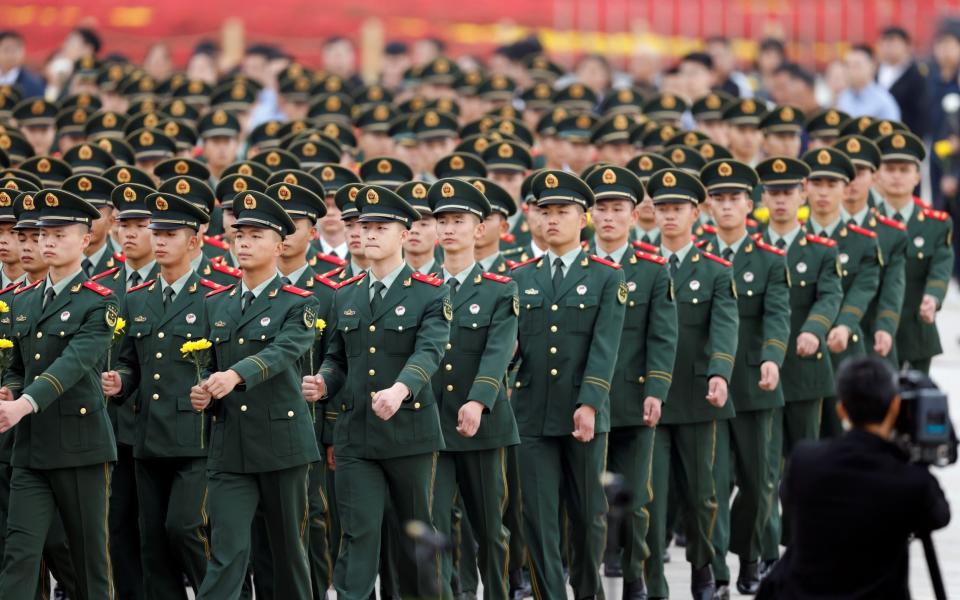Analysis: Why we should be wary of the China hypersonic missile revelations

China is engaging in a delicate dance after media reports that it tested a nuclear-capable hypersonic missile back in August.
The high-tech missile apparently circled the globe before cruising back towards Earth, according to US officials quoted in the Financial Times.
But with a government as opaque as Beijing's, it can be hard to determine what’s really going on beyond reading the tea leaves.
Beijing’s initial response was to reiterate its usual broad claims that its military policy is “defensive in nature” and it has no interest in getting into an arms race.
A spokesperson from the Chinese embassy in the US also seized the opportunity to blast the US for “fabricating excuses like ‘the China threat’ to justify its arms expansion and development of hypersonic weapons.”
Even Chinese state media – often the first to crow of successes and happy to stir up nationalist sentiments – did some careful side-stepping. A piece in the Global Times, a Communist Party mouthpiece, bragged of China’s fast-improving military capabilities without confirming or denying whether a hypersonic missile had been tested.
Then, on Monday, the foreign ministry in Beijing brushed off the reports, saying it was just a “routine spacecraft test”.
Beijing could be shying away from saying much for strategic reasons. If one wasn’t tested, Beijing might be happy enough to let the world think that it has such capabilities. If one indeed was tested, Beijing might also be similarly happy to stay mum to avoid the world knowing its true capabilities.
It’s also possible, if a missile was tested, that Beijing didn’t consider the trial a success as it apparently missed its target by about two dozen miles.
It doesn’t help that when it comes to China’s military prowess, Beijing often seeks to cast confusion, seeding doubt as to what kind of hardware is being trialed.
It switches between bragging – showing off its capabilities by trotting out the military hardware for major events – and minimising – for example publicly reporting a smaller defence budget than what experts estimate it actually spends.
What is known is that China, along with the US, UK and Russia, is working toward developing hypersonic capabilities. In 2019, China showcased such a missile – the DF-17 – in a military parade for its national day.
On a numbers level, China’s military is the world’s largest with more than two million active duty personnel. But on an expertise level, it is sub-par, experts say, given a lack of modern combat experience and corruption amongst its ranks.
While China has amassed a number of high-tech tools, it has long struggled with developing advanced technology.
One longtime hurdle has been coming up with a domestic-made jet engine to power both commercial and military aircraft. Instead, China has relied on imports for parts, buying from the US and Russia.
Beijing has pushed to become more self-reliant and to seek greater innovation via homegrown talent, borrowing foreign expertise and also espionage.
But what’s perhaps most unnerving isn’t how much China has in its arsenal — whether in terms of firepower or manpower — but what it plans to do with its military strength.
The Chinese government always says it is investing in new weapons to have the ability to defend itself if necessary. But coupled with territorial incursions along land borders, in the South China Sea and over Taiwan, Beijing’s growing might is rightly being seen as unsettling.

 Yahoo Finance
Yahoo Finance 